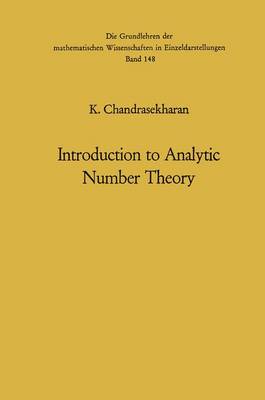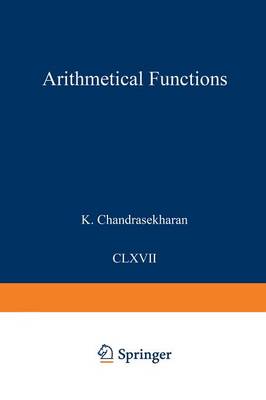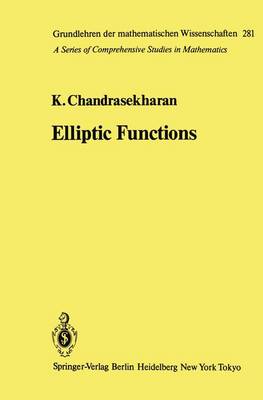Grundlehren der mathematischen Wissenschaften
3 primary works
Book 148
This book has grown out of a course of lectures I have given at the Eidgenossische Technische Hochschule, Zurich. Notes of those lectures, prepared for the most part by assistants, have appeared in German. This book follows the same general plan as those notes, though in style, and in text (for instance, Chapters III, V, VIII), and in attention to detail, it is rather different. Its purpose is to introduce the non-specialist to some of the fundamental results in the theory of numbers, to show how analytical methods of proof fit into the theory, and to prepare the ground for a subsequent inquiry into deeper questions. It is pub- lished in this series because of the interest evinced by Professor Beno Eckmann. I have to acknowledge my indebtedness to Professor Carl Ludwig Siegel, who has read the book, both in manuscript and in print, and made a number of valuable criticisms and suggestions. Professor Raghavan Narasimhan has helped me, time and again, with illuminating comments. Dr. Harold Diamond has read the proofs, and helped me to remove obscurities. I have to thank them all. K.C.
Book 167
The plan of this book had its inception in a course of lectures on arithmetical functions given by me in the summer of 1964 at the Forschungsinstitut fUr Mathematik of the Swiss Federal Institute of Technology, Zurich, at the invitation of Professor Beno Eckmann. My Introduction to Analytic Number Theory has appeared in the meanwhile, and this book may be looked upon as a sequel. It presupposes only a modicum of acquaintance with analysis and number theory. The arithmetical functions considered here are those associated with the distribution of prime numbers, as well as the partition function and the divisor function. Some of the problems posed by their asymptotic behaviour form the theme. They afford a glimpse of the variety of analytical methods used in the theory, and of the variety of problems that await solution. I owe a debt of gratitude to Professor Carl Ludwig Siegel, who has read the book in manuscript and given me the benefit of his criticism. I have improved the text in several places in response to his comments. I must thank Professor Raghavan Narasimhan for many stimulating discussions, and Mr. Henri Joris for the valuable assistance he has given me in checking the manuscript and correcting the proofs. K. Chandrasekharan July 1970 Contents Chapter I The prime number theorem and Selberg's method 1. Selberg's fonnula . . . . . . 1 2. A variant of Selberg's formula 6 12 3. Wirsing's inequality . . . . . 17 4. The prime number theorem. .
Book 281
This book has grown out of a course of lectures on elliptic functions, given in German, at the Swiss Federal Institute of Technology, Zurich, during the summer semester of 1982. Its aim is to give some idea of the theory of elliptic functions, and of its close connexion with theta-functions and modular functions, and to show how it provides an analytic approach to the solution of some classical problems in the theory of numbers. It comprises eleven chapters. The first seven are function-theoretic, and the next four concern arithmetical applications. There are Notes at the end of every chapter, which contain references to the literature, comments on the text, and on the ramifications, old and new, of the problems dealt with, some of them extending into cognate fields. The treatment is self-contained, and makes no special demand on the reader's knowledge beyond the elements of complex analysis in one variable, and of group theory.


